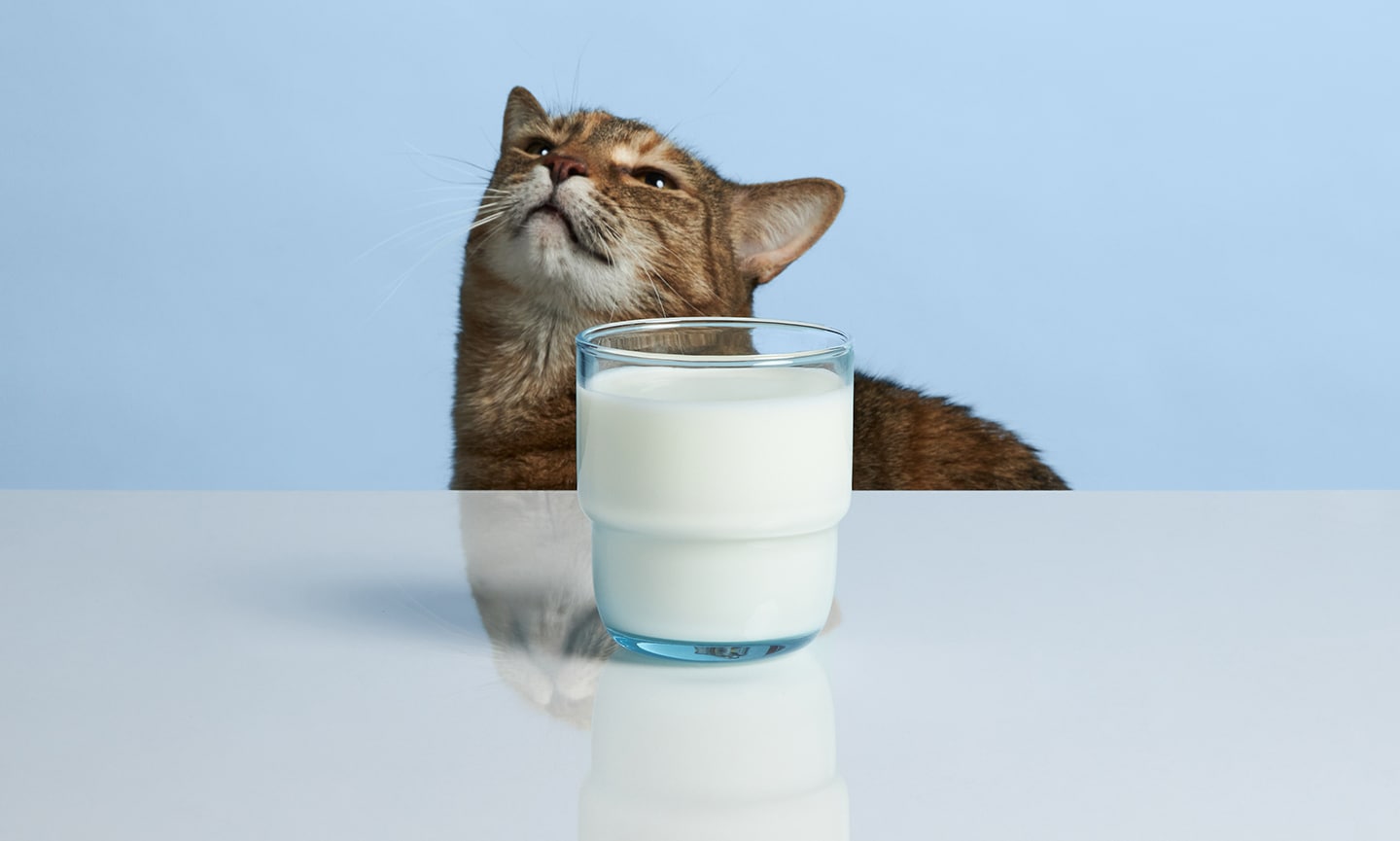
Cats are Lactose Intolerant
Did you know that the majority of cats cannot tolerate lactose? While they'll happily drink the white substance if you give it to them, many cats will experience stomach cramps as a result of this "treat," and that's not fun. By describing the biology of cats, a Science Focus article dispels the fable of the cat with the saucer of milk. Like all young mammals, kittens are born with the ability to digest lactose, the primary sugar in milk; however, soon after weaning, the digestive enzyme, lactase starts to disappear from the gut. When an adult cat drinks milk, the indigestible lactose in its gut may start to cause problems.

Why is this?
As we age, both humans and cats naturally produce less lactase, which reduces our capacity to digest lactose and may eventually lead to lactose intolerance. According to the Cornell University College of Veterinary Medicine website, when a lactose-intolerant cat drinks milk, the undigested lactose passes through the intestinal tract, drawing water with it. Bacteria in the colon also ferment the undigested sugars, producing volatile fatty acids.
Although the majority of cats are lactose intolerant, some do enjoy milk. When you pull the milk carton out of the refrigerator or ask for your cereal milk, they might rub against your leg. If your cat is one of the milk-loving cats, you can occasionally give it a treat because not all cats get sick from it.
Side-Effects
Diarrhea is a sign of your cat being lactose intolerant. You'll be able to tell if your cat is lactose intolerant within eight to twelve hours because they'll show signs of diarrhea, vomiting, or an upset stomach.
Although there's little harm in the occasional treat if your cat really loves milk and appears to tolerate it. Remember that milk contains calories (water has none), so keep it to a minimum. Obesity has serious health implications for cats. The safest option is to buy specialized lactose-free cat milk from your supermarket or pet store.
Other Treat Options
Small bites of tuna or other animal-derived protein make better treats for cats. As you may be aware, cats' bodies are better suited to handle milk than milk's specific nutritional requirements, which are protein-based.
Do you find it surprising that most cats cannot tolerate lactose? Many people find it surprising. Discussing your pet's diet with your veterinarian is always a good idea to ensure that you aren't unintentionally giving your cat food that could make her ill. For advice on the best cat food for your cat, consult your family veterinarian.
